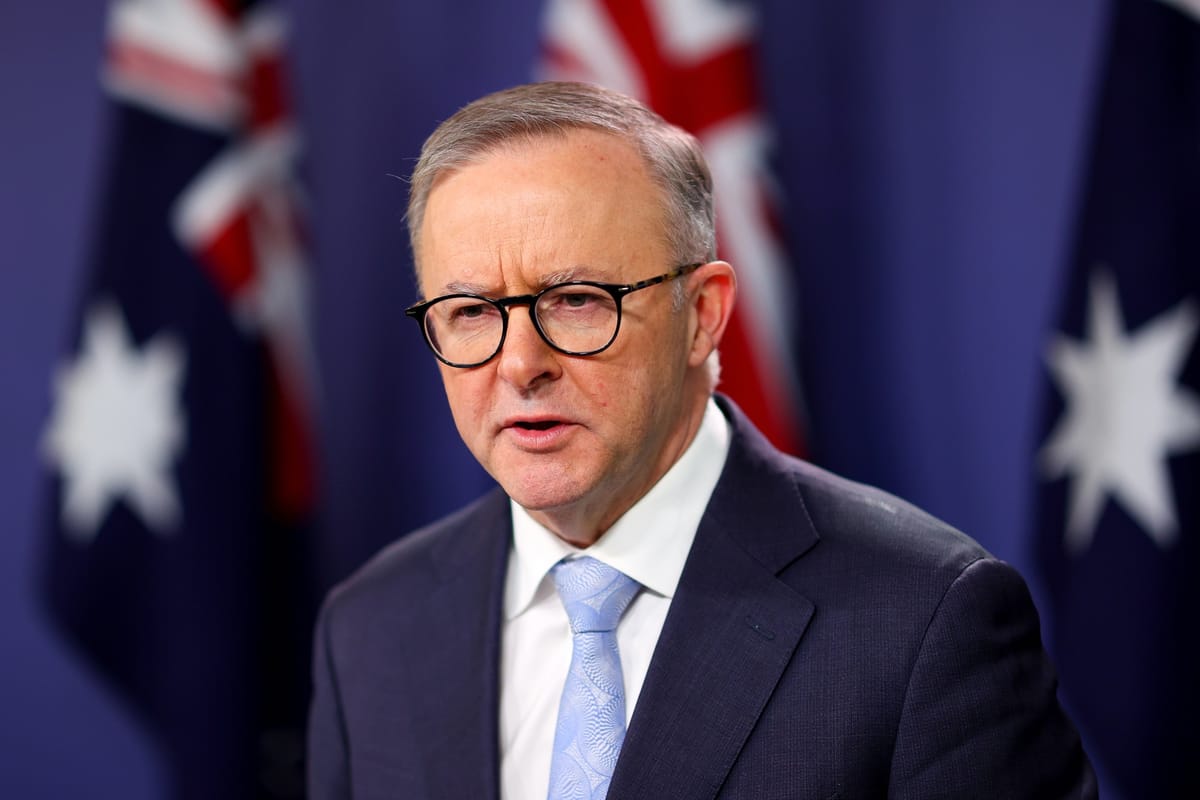Three elections. One message. The U.S. right wing has become the world’s cautionary tale.
They thought they could export the chaos. They thought nationalism was a currency that could be traded across borders, that autocratic rhetoric could be franchised like a fast-food chain, and that the world would follow their script. But instead of ushering in a new global rightwing order, Donald Trump, Elon Musk, and the far-right coalition orbiting them have triggered something else entirely: a deliberate backlash against conservatism itself.
Three elections. Three liberal or center-left victories. Three conservative leaders were humiliated on their home turf.
In Australia, Anthony Albanese has won a historic and crushing victory—while conservative leader and populist flirt Peter Dutton lost his seat. In Canada, Pierre Poilievre fell to an upsurge of resistance voters determined to insulate their institutions. And in Germany, even as the center-right returned to power under Friedrich Merz, the hard-right AfD underperformed despite support from the U.S. far-right and Elon Musk's direct endorsement.
This isn't a coincidence; it's a rebuke. Voters in allied nations are responding to a recognizable pattern: the contamination of democratic systems by the American right's blend of entitlement, disruption, and ideological extremism.
In the past, U.S. presidents inspired the world. Now, under Trump's second term, he provokes it. German voters cited fear of Trump's NATO withdrawal and his overtures to Putin as a major concern. Trump's threats to annex resources and shatter bilateral trade became a central election issue in Canada. And in Australia, Trump's shadow loomed over the campaign in the form of Dutton's mimicry of American culture-war rhetoric—a choice that ended in political annihilation.
Trumpism, once seen as an internal American anomaly, has metastasized into an international contagion. But where 2016 invited fascination, 2025 has delivered fatigue. Foreign electorates are inoculating themselves. The operating assumption in Washington—that the rest of the world will adjust to its tantrums and threats—is being shattered in real-time.
The backlash is not ideological in the traditional sense; it is defensive. It is not about policy; it is about sovereignty. Trump's America wants allies that obey and rejects partners that think for themselves. The result is a recoil: Mark Carney ran on the explicit promise of a sovereign future. Anthony Albanese declared, "We do not seek our inspiration overseas." Friedrich Merz warned that Europe may need to decouple its defense from the United States altogether.
We can't ignore the Elon in the room. The world has learned what happens when one of the richest men on Earth decides he's entitled to influence as much as wealth. In Germany, Musk's support for AfD failed to move the needle. His brand, once associated with innovation, is now a political liability. In democracies that are learning to recognize and resist American tech-political imperialism, the playbook is collapsing.
Musk and Trump represent the same delusion: that money and media dominance translate into political inevitability. But the audiences they built online aren't electorates. And the world is no longer buying the story that American wealth is synonymous with wisdom.
What happened in Germany, Canada, and Australia is a rejection of manipulation. In each case, conservatives aligned with Trumpism found themselves on the wrong end of a backlash born of fatigue, not fanaticism. Voters weren't mobilized by utopian promises. They were activated by a clear and present threat to their own democratic rights.
It turns out that when Americans elect chaos, the rest of the world responds by electing caution. It turns out that exporting conspiracism, culture war, and authoritarian flirtation doesn't globalize power—it globalizes resistance. And that resistance is increasingly sophisticated.
In Canada, Carney's campaign wasn't purely national. It framed Trump's trade threats as attacks on Canadian independence. In Australia, Dutton's invocation of American-style grievance politics backfired catastrophically. Despite a general shift rightward in Germany, there was no appetite for a hard-right coalition explicitly aligned with Trumpism. Even the victories of conservative parties are now conditioned by the need to distance themselves from America's dysfunction.
The international immune system is activating. Democracy, flawed and fragile, is developing antibodies against a very specific kind of viral politics. The backlash is electoral, cultural, and institutional. And it is spreading.
The American right has overreached. It assumed that its vision of deregulated power, culture war frenzy, and personalized rule would appeal universally. It believed that what worked on Twitter would work at the ballot box. But 2025 is proving otherwise. Austerity and paranoia are not export products. And neither is the cult of Trump.
What comes next will not be a reversion to status quo liberalism. It will be a reassertion of epistemic national boundaries. Countries are starting to draw lines between legitimate debate and imported chaos, and as those lines sharpen, the global appeal of the U.S. far right dulls.
There is a difference between influence and interference, and there is a price for confusing the two.
In 2025, that bill is coming due.
The Index is a reader-supported, indie publication.
Now, more than ever, the world needs an independent press that is unencumbered by commercial conflicts and undue influence.
By taking out an optional founding membership, you can help us build a free, accessible, independent news platform firewalled from corporate interests.



